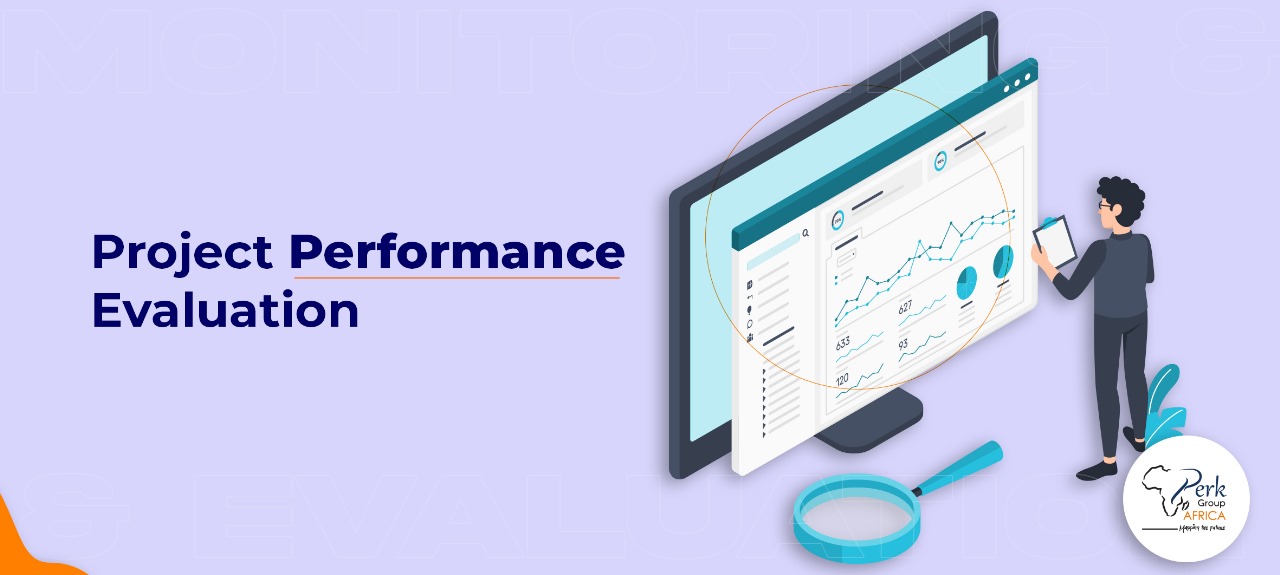
Training Course on Project Performance Evaluation
Course Overview
Project performance evaluation is a crucial aspect of project management, as it helps assess how well a project is progressing and whether it is meeting its goals and objectives. This course is designed to provide participants with a comprehensive understanding of project performance evaluation, a critical aspect of effective project management. The course covers key concepts, methodologies, and tools essential for assessing and improving project performance. Participants will gain practical skills and knowledge to enhance their ability to monitor, measure, and report on project progress.
Target Audience
- Project Directors
- Project Managers
- Project Consultants
- Project Planners and Estimators
- Quality Assurance Managers and Engineers
- Contract and Procurement Managers
- Project and Discipline Engineers
- Specialist Technicians and Technical Assistants
Course Objectives
After the training, the participants will
- Gain a clear understanding of project management concepts and project life cycle phases.
- Identify and use key performance indicators (KPIs) to measure project success.
- Recognize and manage potential risks in projects.
- Apply frameworks and models to assess and improve project success.
- Use effective methods for collecting and analyzing project data.
- Communicate project performance effectively to stakeholders.
- Assess and enhance project deliverables.
- Embrace continuous improvement in project management.
- Understand and manage project documentation.
- Utilize project management tools for data analysis and reporting.
- Apply ethical considerations in project performance evaluation.
- Analyze real-world cases and apply learning to practical situations.
Benefits to the Organization
Organizations whose staff attend this course will benefit from:
- Better monitoring and tracking of project performance
- Data-driven decision-making for improved results
- Clearer reporting and accountability to stakeholders
- Identification of gaps and ways to improve projects
- Skilled staff able to manage evaluations independently
- Early detection and management of project risks
- Lessons learned for continuous improvement
- Increased credibility with donors and partners
Benefits to the Participants
Participants will gain:
- Practical skills to evaluate and improve project performance
- Confidence in collecting, managing, and analyzing project data
- Ability to use evaluation results for decision-making
- Skills to report findings clearly to stakeholders
- Hands-on experience with tools for both quantitative and qualitative data
- Knowledge to identify and address project challenges
- Insights for continuous learning and professional growth
- A certificate of Completion from Perk Group Africa
Course Duration: 10 days
Course Outline
Module 1: Monitoring and Evaluation (M&E) for Project Evaluations
- Understanding the Results Framework
- Defining M&E Project Indicators
- Introduction to the Logical Framework
Module 2: Project Evaluation Fundamentals
- Exploring the concept of project evaluation
- Recognizing the significance of project evaluation
- Distinguishing between monitoring and evaluation
- Designing a project evaluation
Module 3: Developing an Evaluation Plan
- Establishing the purpose of the evaluation
- Identifying different types of evaluations
- Formulating evaluation criteria
- Crafting meaningful evaluation questions
Module 4: Data Collection Planning
- Recognizing sources of evaluation data
- Selecting methods for data collection
- Choosing appropriate data analysis methods
- Completing an evaluation matrix
Module 5: Organization of Evaluation Activities
- Task allocation for evaluation
- Creating an evaluation work plan
- Developing an evaluation budget
Module 6: Implementation of Evaluation Plans
- Identification of evaluation indicators
- Development of evaluation tools
- Integration of monitoring data in the evaluation
- Managing diverse data collection methods
Module 7: Mobile Data Collection Techniques
- Transitioning from paper-based to ODK forms
- Configuration of ODK server aggregate
- Field data collection using ODK Collect
- Exporting data from ODK for further analysis
Module 8: Quantitative Data Analysis with SPSS/Stata
- Introduction to statistical concepts
- Variable creation and data entry
- Data reconstruction and manipulation
- Understanding data weighting
- Descriptive statistics
- Inferential statistics: hypothesis testing, T-test, ANOVA, regression analysis
Module 9: Qualitative Data Analysis
- Principles of qualitative data analysis
- Preparing data for qualitative analysis
- Linking and integrating multiple data sets
- Thematic analysis and content analysis
- Manipulation and analysis of data using NVivo
- Data triangulation
Module 10: Development of Evaluation Findings
- Consolidating the evaluation matrix
- Implementing data triangulation
- Constructing responses to evaluation questions
Module 11: Preparation of the Evaluation Report
- Formulating conclusions based on findings
- Generating actionable recommendations
- Delivering the final evaluation report
- Disseminating the results of the evaluation
Note: This outline provides a general structure for the training. The specific content, activities, and duration of each session may be adjusted based on the target audience, learning objectives, and available time.
Classroom Training Schedule
| Start Date | End Date | Location | Cost | Apply |
|---|---|---|---|---|
| Feb 09, 2026 | Feb 20, 2026 | Nairobi | $ 2000 | Register |
| Mar 16, 2026 | Mar 27, 2026 | Nairobi | $ 2000 | Register |
| Apr 20, 2026 | May 01, 2026 | Nairobi | $ 2000 | Register |
| May 25, 2026 | Jun 05, 2026 | Nairobi | $ 2000 | Register |
| Jun 29, 2026 | Jul 10, 2026 | Nairobi | $ 2000 | Register |
| Aug 03, 2026 | Aug 14, 2026 | Nairobi | $ 2000 | Register |
| Sep 07, 2026 | Sep 18, 2026 | Nairobi | $ 2000 | Register |
| Oct 12, 2026 | Oct 23, 2026 | Nairobi | $ 2000 | Register |
| Nov 16, 2026 | Nov 27, 2026 | Nairobi | $ 2000 | Register |
Virtual Training Schedule
| Start Date | End Date | Location | Cost | Apply | |||
|---|---|---|---|---|---|---|---|
| Jan 26, 2026 | Feb 06, 2026 | Online | $ 1000 | Register | |||
| Mar 02, 2026 | Mar 13, 2026 | Online | $ 1000 | Register | |||
| Apr 06, 2026 | Apr 17, 2026 | Online | $ 1000 | Register | |||
| May 11, 2026 | May 22, 2026 | Online | $ 1000 | Register | |||
| Jun 15, 2026 | Jun 26, 2026 | Online | $ 1000 | Register | |||
| Jul 20, 2026 | Jul 31, 2026 | Online | $ 1000 | Register | |||
| Aug 24, 2026 | Sep 04, 2026 | Online | $ 1000 | Register | |||
| Sep 28, 2026 | Oct 09, 2026 | Online | $ 1000 | Register | |||
| Nov 02, 2026 | Nov 13, 2026 | Online | $ 1000 | Register | |||
| Dec 07, 2026 | Dec 18, 2026 | Online | $ 1000 | Register |
Course Language
This Training course is offered in ENGLISH . Please indicate the language of choice during registration.
Course Delivery
Presentations are well guided, practical exercise, a plenary presentation, and group work. Participants are encouraged to bring any data relevant to their job responsibilities. This is hands-on, product-oriented training and will mostly involve practical exercises. Each participant MUST bring along their own working laptop and android phone.
Certification
Upon completion of training, the participant will be issued with a certificate of Completion.
Tailor-Made Course
3 months post-training support, consultation, and coaching is a guarantee from us and will be available after the course.We can also do this as a tailor-made course to meet organization-wide needs. Contact us to find out more: training@perk-gafrica.com.
